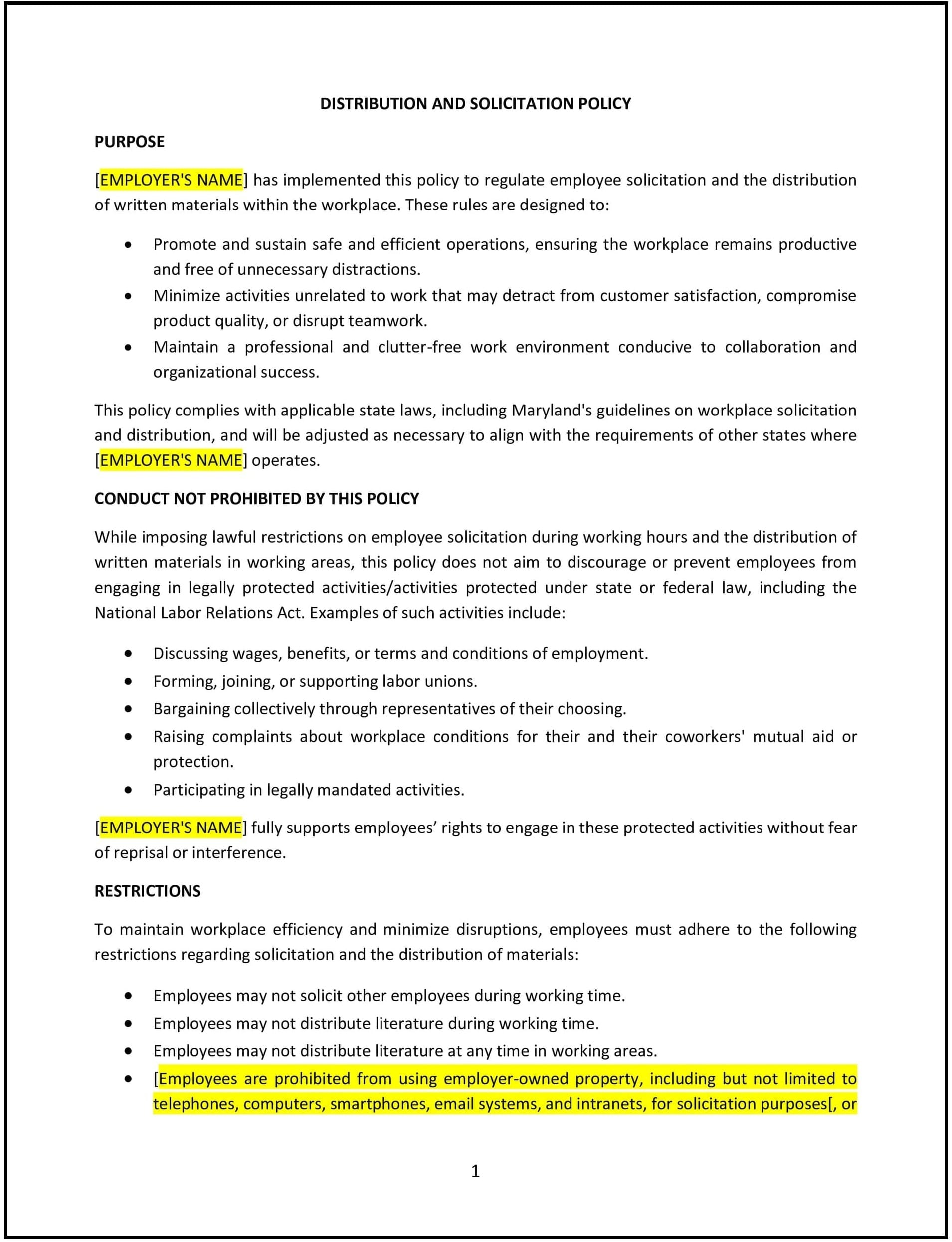Distribution and solicitation policy (Maryland): Free template
Got contracts to review? While you're here for policies, let Cobrief make contract review effortless—start your free review now.

Customize this template for free
Distribution and solicitation policy (Maryland)
This distribution and solicitation policy is designed to help Maryland businesses manage activities involving the distribution of materials and solicitation within the workplace. It establishes clear guidelines to minimize disruptions, promote productivity, and maintain a professional work environment.
By adopting this policy, Maryland businesses can create a balanced approach that respects employee rights while supporting business operations.
How to use this distribution and solicitation policy (Maryland)
- Define permitted activities: Specify the types of solicitation and distribution activities allowed, such as charitable fundraising or internal notices, and their limitations.
- Outline restrictions: Identify areas where solicitation or distribution is prohibited, such as workstations, customer-facing areas, or during working hours.
- Address non-employee activities: Prohibit solicitation or distribution by non-employees on business premises to protect privacy and security.
- Clarify exceptions: Highlight any exceptions, such as employer-sponsored initiatives or events.
- Provide approval processes: Require employees to seek prior approval for distributing materials or conducting solicitation activities.
- Include Maryland-specific considerations: Reflect any relevant state labor laws or practices that impact solicitation and distribution policies.
Benefits of using this distribution and solicitation policy (Maryland)
Implementing this policy offers Maryland businesses several advantages:
- Reduces disruptions: Minimizes interruptions to work by managing solicitation and distribution activities effectively.
- Promotes productivity: Ensures employees can focus on their tasks without unnecessary distractions.
- Enhances professionalism: Maintains a professional atmosphere in the workplace.
- Protects privacy: Restricts non-employee solicitation to safeguard employee and customer privacy.
- Provides consistency: Establishes clear expectations and procedures for all employees.
Tips for using this distribution and solicitation policy (Maryland)
- Communicate clearly: Share the policy with employees during onboarding and in handbooks to ensure awareness.
- Monitor compliance: Regularly review activities to ensure adherence to the policy.
- Balance flexibility: Allow certain approved activities, such as charitable campaigns, to foster employee engagement.
- Address violations promptly: Enforce the policy consistently and address breaches respectfully.
- Stay informed: Reflect updates to Maryland labor laws or workplace practices in the policy.